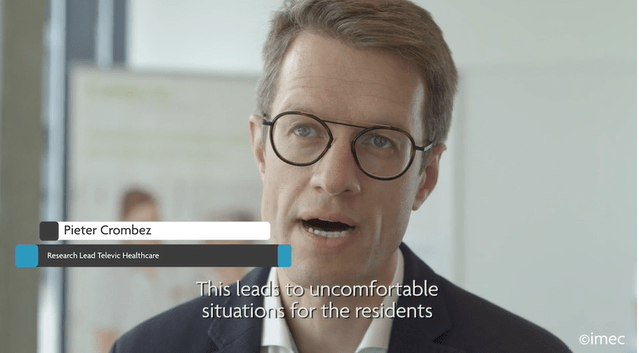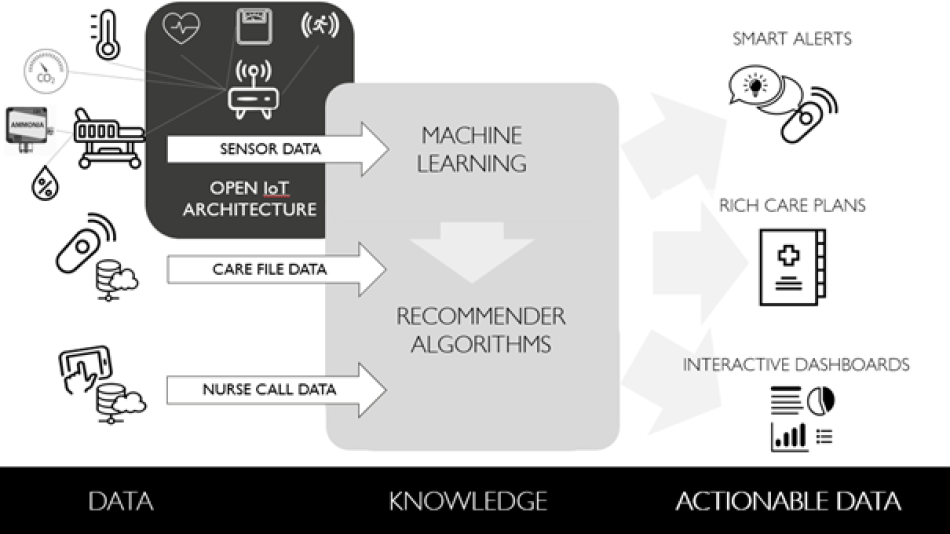Discrete
INCONTINENCE MANAGEMENT THROUGH AMBIENT MONITORING AND ACTIONABLE DATA
Over half of nursing home residents require continence care. During the day, an estimated 20% or more of caregiving time is spent directly dealing with the consequences of incontinence; at night, this rises to 70%. Continence care management involves periodic checks of residents’ incontinence protection, micturition training (toilet visits at regular intervals) and manual creation of individual incontinence profiles. These practices give rise to either unnecessary checks or delayed interventions, meaning protective materials are changed too early or too late. Unnecessary check-ups and incontinence accidents damage the well-being of residents, triggering secondary behaviors such as wandering and disturbed sleep. They also place an extra burden on already overstretched care personnel. In short, while continence care management is necessary, it is time consuming for staff and, if not carried out effectively, it can have a negative impact on residents’ experience of life in nursing homes.
DISCRETE aimed to innovate in nursing home care management to improve the quality of care and reduce workloads.
Specifically, DISCRETE sought to unlock the value of data from three sources:
- a smart bed equipped with non-intrusive sensors
- the nurse call system including the reasons for and actions resulting from calls
- the resident care file containing residents’ profiles and specific care needs
To do so, DISCRETE employed a participatory development approach, conducting several data acquisition campaigns to ensure the innovation respected existing nursing home infrastructure and practices.
The outcomes include
- An IoT architecture and secure commissioning framework to unlock sensor data from the room
- Algorithms and recommender engine that suggest real time care actions
- Intuitive user interfaces for call and care management
Discrete is an imec.ICON project and is supported by VLAIO.
THC collaborates with Corilus, Distrac Group, imec.distrinet, imec.stadius, KULeuven-HCI, WZC Sint-Bernardus and OCMW Kortrijk.

